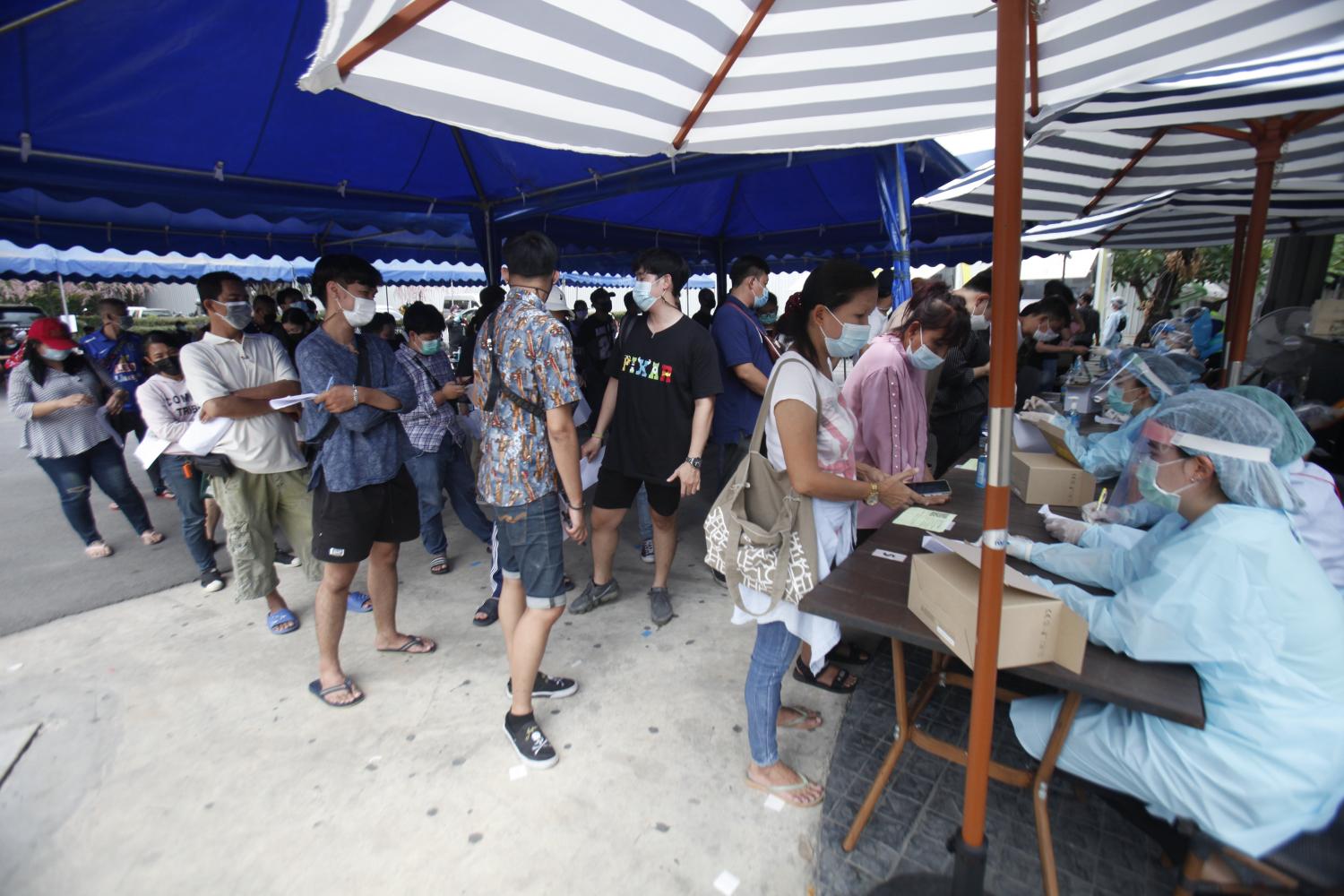
As Covid-19 hits the country hard, disparities between the rich and the underprivileged become glaring.
The demand for medical services and hospital beds has soared as new infection cases sharply increase following the so-called Thong Lor cluster in which entertainment venues frequented by those in the upper echelons of society became a Covid-19 epicentre. On Saturday, the confirmed cases, totalling 2,839, were at an all-time high.
On the one hand, we have witnessed the plight of ordinary people, those of the working class, who struggle hard to gain access to the healthcare system in these difficult times. One of them, a family of six who live in the city's Bang Kho Laem district fell ill after one member contracted the deadly virus. But they are not to blame; their living conditions don't allow physical distancing. Three younger members were admitted at a state hospital, leaving behind grandma, aged over 80, and two siblings in their late 70s. Their neighbours tried to help but all the hospitals turned them down.
Without any help, the oldest grandma finally succumbed to the virus at the house.
This tragedy would not have come to light had their neighbour not posted a clip of the desperate family on social media. Soon after the clip went viral, the public health authority sent an ambulance to pick up the two survivors and collect the deceased.
There must be a plethora of such untold sad stories. This is a shame for Thailand which has gained international recognition for its achievement in universal healthcare coverage.
On the other hand, we have seen how the rich (and famous) take advantage of their connections in order to get medical service.
A comedian, Arkom Preedakul alias Khom Chuan Chuen, was reported to have contracted Covid-19 last week. While staying in the private-run Vibharam Hospital, his condition worsened with severe pneumonia and acute renal failure. His family shared the actor's battle with the disease in the media, asking for experts' help.
He was later transferred to Ramadhibodi Chakri Naruebodindra Hospital, a university hospital with more advanced facilities and equipment, on Saturday morning. Arkom, who is 63, is reportedly in critical condition as I'm writing this article. While I am sorry for him, and hope for his recovery, his case tells how connections are the key to get what one needs.
His story wouldn't have caused debate unless his friend, a well-known businessman, Vinij Lertrattanachai, shared it on his Instagram account, showing gratitude to Deputy Public Health Minister Sathit Pitutecha for managing Arkom's hospital transfer. The post was deleted after netizens furiously bombarded his wall with harsh criticism.
Vibharam Hospital's director Paiboon Eksaengsri, in an attempt to appease public anger, dismissed any use of connections in this case. He explained the hospital transfer, which was regular practice, was done by hospital staff. Despite Dr Paiboon's denial, many people are still angry, not with the actor, but the ugly system that sees some lives as more precious than others. They are not mad at the comedian and his family. It's the ugly system that they detest. Poor people are left out in the cold, while the rich takes all.
This is accumulative resentment after seeing a handful of privileged people getting away from trouble and hardship since the beginning of the outbreak last year.
Remember, the first wave of Covid-19 started from a cluster associated with the army's boxing stadium, which violated the CCSA ban for sport events in March last year. The second wave in December erupted from the migrant worker cluster in Samut Sakhon, involving with labour smuggling network, facilitated by high-rank officials. it's the same connection with the gambling den saga in Rayong and other provinces.
I need not repeat who was involved in the third wave. It's apparent that the exclusive clubs had flouted the law, the emergency decree, which requires an early closing time, and were operating without a proper licence. Had they not had solid connections, the operators would not have dared to do so.
Perhaps Mr Arkom's hospital transfer may have nothing to do with personal connections as insisted by the hospital director, and the transfer was inevitable given his critical stage. But magic would be needed for people with a lower social status to have access to such a service.
My friend who works in the public health field shared a story of her boss, a member of a prestigious class, organised by the army, aimed at establishing a network between the state and business sectors. The boss often received phone calls from high-ranking officials and his classmates requiring beds in top state hospitals for their families and close friends. This means they jump the queue ahead of others.
Another story is the case of a reporter from a media giant who tested Covid-19 positive last week. He posted a clip of himself while waiting for a bed at the Police General Hospital, which he termed as "difficult experience". The journalist, with mild symptoms and no need for emergency care, was finally admitted to a hospital run by the BMA, reportedly arranged by the Bangkok governor.
In a normal situation, few people would mind the use of connections and/or privilege in securing hospital beds and medical services, like vaccination, as resources are not stretched too thin as in Covid time. But during the pandemic, such privilege takes away public health resources that should prioritise critically-ill patients -- like the three old women.
Those stories which are reported by the media reveal the government leaders' failure in emergency response and crisis management. It cannot handle public sentiment properly. Yet Prime Minister Gen Prayut Chan-o-cha and his government, as if their heads were in the sand, do not see it that way.
They keep insisting they can handle the pandemic, and hospital beds are sufficient. Let's see. But they may be right. The service is available -- but for the privileged, not the people who need it most.
Paritta Wangkiat is a Bangkok Post columnist.
